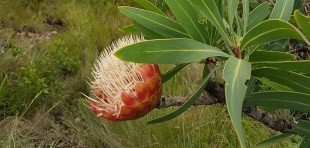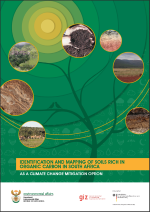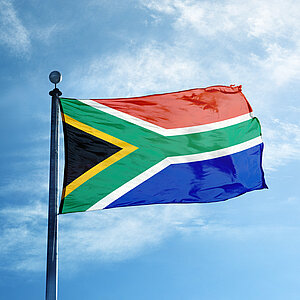Low-Emissions Development Strategy Workshop

A workshop on the Low Emission development strategy (LEDS) focusing on implementability/investability, resilience and inclusivity in the framework for a just transition to a low carbon economy.
South Africa led by the Department of Environmental Affairs (DEA) is in the process of developing a Low-Emission Development Strategy (LEDS) in response to article 4.19 of the Paris Agreement. The strategies first draft was published in 2018 for public commenting, with a view to reflect and seek inputs, to prepare for the next steps and to turn the SA-LEDS into an implementable proposal. The DEA hosted a LEDS review workshop from the 6 - 7 March 2019 in Pretoria, South Africa, co-hosted and supported by GIZ´s Climate Support Programme (CSP) and the 2050 Pathways Platform project.
The workshop brought together over 80 participants from various South African constituencies such as national and subnational departments, social society, business and labour organisations as well as some international experts. The workshop focused on three key themes, the first theme looked at 'from plan to prosperity', what is needed to translate the SA-LEDS into investment and policy plans. The second theme was, 'building long-term resilience' and how can the SA-LEDS enhance South Africa's resilience to climate change. Lastly, how to ensure that SA-LEDS is inclusive, thus how can the country ensure a smooth and just transition to a low carbon economy and society.
The event was opened by Dr Tsakani Ngomane (DDG DEA), Richard Baron (Executive Director 2050 Pathways Platform) and Dr Rüdiger Lotz (Deputy Head of Mission, German Embassy).
The workshop looked at best-practices and experiences on long-term strategies from both Mexico, Costa Rica and Germany. The workshop further discussed aligning financial flows and attracting investment towards implementation of the SA-LEDS both locally and internationally with various stakeholders' present, ranging from National Treasury, the Development Bank of South Africa, commercial banks to Development Finance Institutions (DFIs) such as the World bank, African Development Bank (AfDB), AFD and KfW.
On the second day the workshop focused on synergies with existing policies and plans in partnership with the Department of Energy and the Department of Trade and Industry. Further, how SA-LEDS could be successfully facilitate industry transformation while having the Strategy be inclusive and participatory.
SA-LEDS aims to articulate the path going forward in order to place the country on a low-carbon and climate resilient path, while at the same time ensuring broader socio-economic development. This SA-LEDS has been developed within the context of an objective, to drive change through co-benefits such as job creation and socio-economic upliftment. While principally focused on low-carbon development, the strategy will also consider how mitigation options may affect or be affected by adaptation measures and potential combined effects of these interventions. The goal of DEA is to have the strategy approved by the Cabinet in July / August and to send it to UNFCCC at the end of 2019.
The CSP will provide continued support to further stipulate the draft strategy for submission to UNFCCC as well as prepare for its meaningful implementation.
The link has been copied to the clipboard
Contact
IKI Office
Zukunft – Umwelt – Gesellschaft (ZUG) gGmbH
Stresemannstraße 69-71
10963 Berlin








